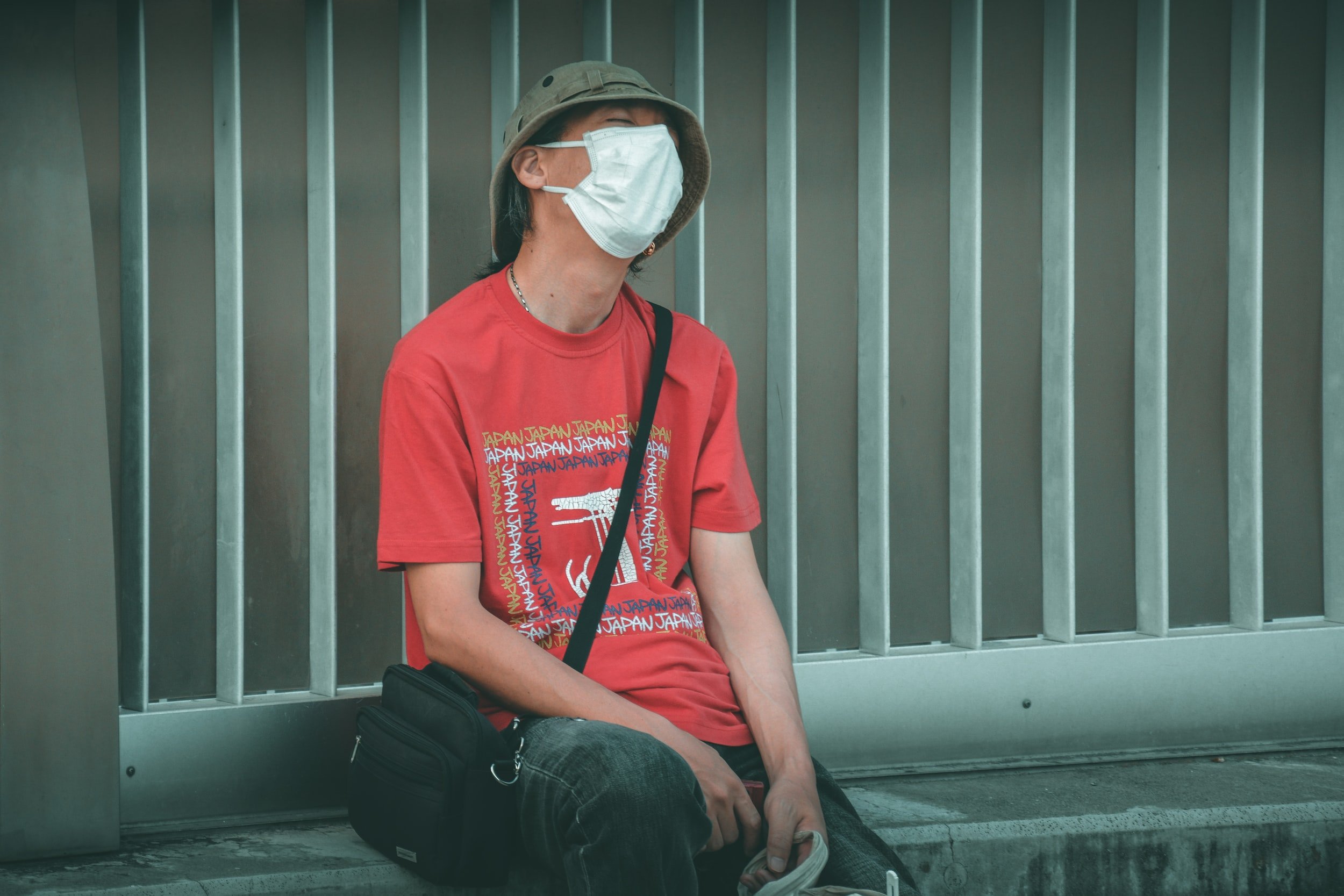Self-Care and Well-being for Researchers Studying Sensitive Issues
Studying difficult issues can take a toll on researchers.
If we are going to study real life, we can’t help discovering the dark side of human existence. Listening to heart-wrenching stories. Looking at images that depict pain, sadness, displacement. Reading accounts of suffering, or analyzing responses to surveys that demonstrate the impact of natural or man-made disasters. They can stick in our minds and hearts, and make it hard to keep going. The ability to practice self-care is an essential research skill!
Find strategies and tips in this video from Dr. Helen Kara and these open-access articles.
Abbott, L., & Scott, T. (2019). Reflections on researcher departure: Closure of prison relationships in ethnographic research. Nursing Ethics, 26(5), 1424–1441. https://doi.org/10.1177/0969733017747959
Abstract. The United Kingdom has the highest incarceration rate in Western Europe. It is known that women in prison are a vulnerable female population who are at risk of mental ill-health due to disadvantaged and chaotic life experiences. Accurate numbers of pregnant women held in UK prisons are not recorded, yet it is estimated that 6%–7% of the female prison population are at varying stages of pregnancy and around 100 babies are born to incarcerated women each year. There are limited published papers that document the departure of the researcher following closure of fieldwork with women in prison. This article identifies the dilemmas and challenges associated with the closure of prison fieldwork through the interwoven reflections of the researcher. Departure scenarios are presented which illuminate moments of closure talk with five women, supported by participant reflections regarding abandonment and loss, making pledges for the future, self-affirmation, incidental add-ons at the end of an interview and red flags, alerting the researcher to potential participant harm through ill health or self-injury.
Alberro, H. (2019). Methodological considerations for the special-risk researcher: A research note. Methodological Innovations, 12(1). https://doi.org/10.1177/2059799119840975
Abstract. Researchers seeking to investigate the dynamics and individuals constituting today’s myriad social movements must grapple with attendant challenges such as designing a methodological framework appropriate for investigating subjects and phenomena of interest, as well as gaining and maintaining access to groups of interest. Such challenges are magnified many times over when the groups under investigation pose potential special safety risks to themselves as well as researchers through engagement in dangerous or illegal activities, problematize previously conceived research criteria for suitable participants due to their amorphous and transient organizational dynamics or are otherwise difficult to access. In this research note, I recount my experiences in the field and the various methodological readjustments I was compelled to make as a result while conducting qualitative investigations of radical environmental activists for my PhD thesis. It is hoped that the experiences and insights gleaned from the research note will be deemed of value for future scholars engaging in ‘special-risk’ research
Clark, A. M., & Sousa, B. J. (2018). The Mental Health of People Doing Qualitative Research: Getting Serious About Risks and Remedies. International Journal of Qualitative Methods. https://doi.org/10.1177/1609406918787244
Abstract. Qualitative research is not only challenging paradigmatically but is intellectually and interpersonally demanding too. Historically, those doing qualitative work—either by itself or in mixed method research—have not necessarily felt readily understood or as respected by funders, mainstream journals, or even colleagues. Attaining funding, publications, and respect is challenging enough for everyone—harder still when your work and its epistemological and ontological foundations are not well known or recognized.
Fenge, L. A., Oakley, L., Taylor, B., & Beer, S. (2019). The Impact of Sensitive Research on the Researcher: Preparedness and Positionality. International Journal of Qualitative Methods. https://doi.org/10.1177/1609406919893161
Abstract. There is currently limited research exploring the impact of undertaking sensitive or challenging research on the researcher, although some textbooks explore researcher preparedness. This article presents a discussion of the findings from a research project which engaged with the seldom heard voices of researchers themselves. The aim was to explore researchers’ experiences of undertaking research on sensitive topics, or with marginalized groups, as this can expose researchers to emotionally disturbing situations throughout data collection and analysis, which can be psychologically challenging. Although ethical codes of practice include discussion around protection of both the researcher and the participant, in practice, the ethics approval process rarely considers the impact of the proposed research on the researcher. Their experiences are therefore seldom acknowledged or heard, resulting in potential distress for the researcher. Semistructured interviews were undertaken with social science researchers from a range of discipline backgrounds and at different points in their research careers (n = 10). This article explores two themes emerging from the data: preparedness and positionality. It considers what these themes mean in terms of supporting researchers who encounter challenging research data, and issues related to supporting researcher reflexivity and the requirements for institutional support offered to researchers will also be considered.
Kapofu, L. K. (2021). Researching the sociocultural: Modelling a responsive focused ethnography. Methodological Innovations, 14(1). https://doi.org/10.1177/2059799120987785
Abstract. Assuming a methodological posture, this work extends the increasing legitimacy of the sociocultural in qualitative studies. Confronted by sociological questions with potential anthropological answers, this study straddled ethnographies and invoked attributes from both conventional and focused ethnography in a responsive focused ethnography. Responsive-focused ethnography transcends the strictures of traditional sociocultural dichotomies in understanding contemporary institutional arrangements. Experience during its deployment hints a responsive explorative frame for cultural excavation devoid of any illusions of the hidden nature of sociocultural reality. Deployment of this model also demonstrated the possibility of more holistic focused ethnographies with utility in addressing sociological questions with anthropological understandings across diverse contexts.
Kumar, S., & Cavallaro, L. (2018). Researcher Self-Care in Emotionally Demanding Research: A Proposed Conceptual Framework. Qualitative Health Research, 28(4), 648–658. https://doi.org/10.1177/1049732317746377
Abstract. Researchers are emotionally and psychologically affected by emotionally demanding research that demands a tremendous amount of mental, emotional, or physical energy and potentially affects or depletes the researcher’s well-being. Little attention has been given to preparing doctoral students and novice researchers engaged in such studies. Four possible types of emotionally demanding research experiences are presented: sensitive issues, personal trauma previously experienced, experience of traumatic life events during research, and unexpected events that arise during research in what was previously not identified as a sensitive issue. The need for self-care is highly relevant to each type, despite their different impacts on researcher well-being. This conceptual article furthers conversation in the field about how researchers and educators can address the need for self-care to prepare novice researchers and proposes a conceptual framework for researcher self-care in emotionally demanding research, with an aim for future empirical study.
Ntanyoma, R. D. (2021). Fieldnotes, Field Research, and Positionality of a “Contested-Native Researcher.” International Journal of Qualitative Methods. https://doi.org/10.1177/16094069211025454
Abstract. The article recapitulates field research experiences of a native researcher in Eastern DRC. In many cases, a native is considered an insider. However, the field research took place in an ethnically polarized context where an insider researcher can be mischaracterized and amalgamated to her own ethnic community. Besides polarization, the fieldwork took place in a volatile setting to the extent that it increases security concerns for a researcher who belongs to a “contested community”; meaning, researcher’s position is likely associated with his ethnic community. Based on the field experience, the article shares insights of dealing with this complexity, volatility, and uncertainties. While the article does not claim that insights can be generalized across different contexts, it specifically proposes some attitudes to take when a researcher faces a dilemma of touching the ground realities while he might individually be amalgamated within socio-cultural differences. The article recalls the necessity of understanding the effects of socio-cultural polarization within the academic field.
Six, S. (2020). Anticipating Doing a Study With Dying Patients: An Autoethnography on Researcher Well-Being. International Journal of Qualitative Methods. https://doi.org/10.1177/1609406920967863
Abstract. It is a well known problem that qualitative researchers in the social health sciences are potentially at risk of experiencing emotional burden when confronted with sensitive topics, such as death and dying. A number of research papers and reviews suggest that self-reflection could be helpful in dealing with the associated emotional burden. These publications however typically mention strategies that deal with the problem when emotional burden is already present. In this article I explored if a proactive self-reflective approach could be useful to prevent emotional problems when dealing with dying patients and their relatives during my research project. For this paper I used an autoethnographic approach to describe the self-reflective process I undertook before the start of my research project to identify, reconstruct and analyze a number of critical personal experiences that were likely to cause emotional problems. Five themes emerged: seeing people suffer or die, dealing with bereaved family members, difficulties regarding interdisciplinary research, unresolved personal issues from the past, and unwillingness to take part in my research study. From a methodological point of view, a proactive self-reflective approach deserves consideration as a tool to help better prepare researchers in the social health sciences to conduct research into delicate topics. Not only does it enhance researcher wellbeing, it also increases the quality of the researcher-as-instrument. This article is a worked example of how to engage in such proactive self-reflection and illustrates the added value of including this step at the start of a research project looking into sensitive topics.
More Methodspace posts about researching sensitive issues













For Pride Month 2023, learn respectful ways to study LGBTQ+ people and related issues.